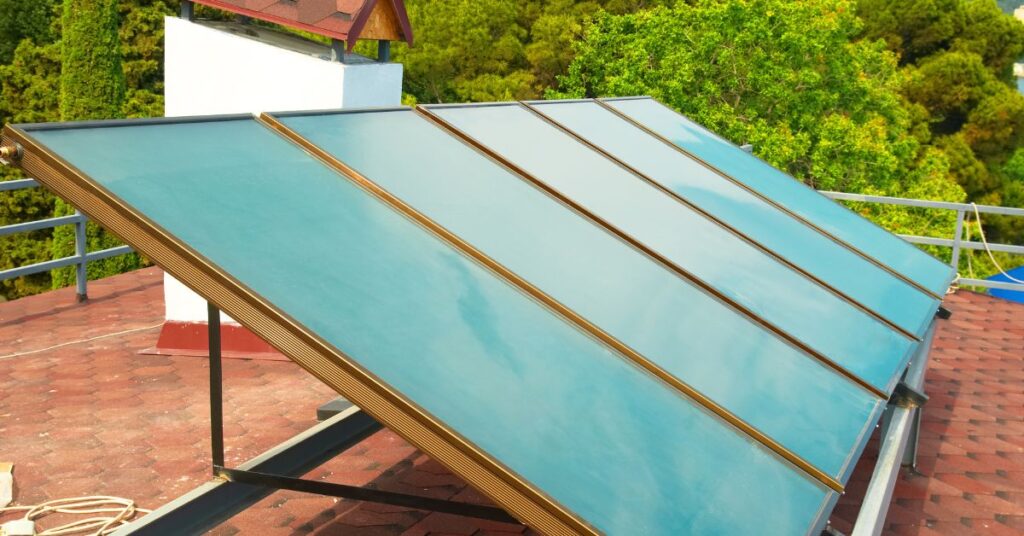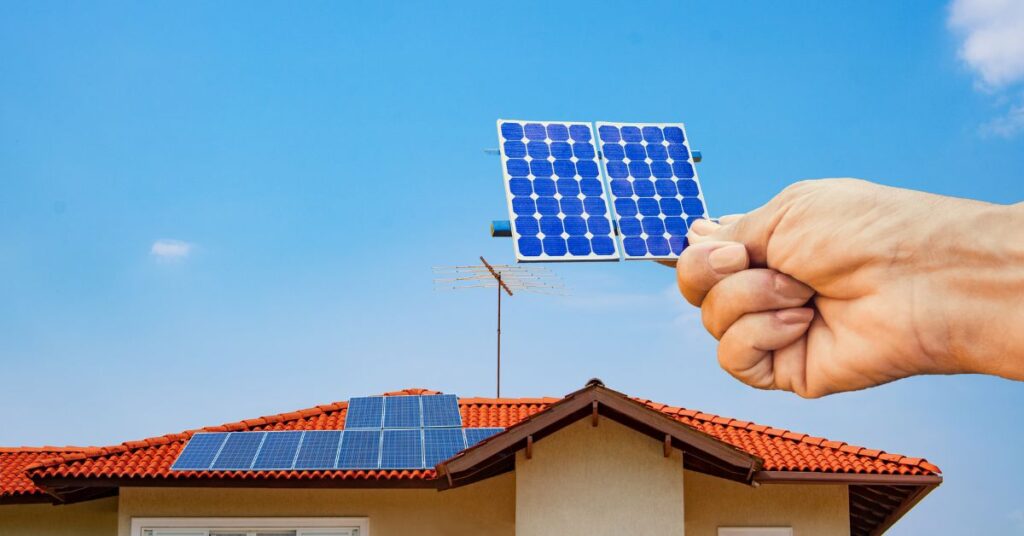Rooftop Solar Can Help You Save Money and Energy in Delhi NCR
Know the details about Rooftop Solar Can Help You Save Money and Energy in Delhi NCR, Discover how rooftop solar in Delhi NCR can save you money and energy. Our comprehensive guide explores the benefits of solar power, from reducing energy bills to supporting sustainable living in urban settings.
Learn about government incentives, installation processes, and maintenance tips to maximize your savings and reduce your carbon footprint. Whether you’re a homeowner or a business owner, rooftop solar solutions in Delhi NCR offer a smart investment for the future. Start your journey toward energy independence today with expert insights and resources tailored for residents of Delhi and the surrounding NCR region.
Table of Contents
Rooftop Solar Can Help You Save Money and Energy in Delhi NCR
As one of the most urbanized and densely populated regions in India, Delhi NCR (National Capital Region) faces unique challenges in terms of energy demand and environmental sustainability. High population density and significant energy consumption contribute to frequent electricity shortages, rising costs, and pollution levels. Amidst this scenario, rooftop solar systems present an innovative and sustainable solution that can help individuals and businesses save money on energy bills, reduce dependency on grid electricity, and contribute to a cleaner environment.
Installing rooftop solar panels is increasingly popular in Delhi NCR, as both government policies and falling prices of solar panels make it a feasible and affordable option. This blog will explore the benefits of rooftop solar in Delhi NCR, including financial incentives, regulatory support, and long-term savings.
Understanding Rooftop Solar Systems

1. What is a Rooftop Solar System?
A rooftop solar system is a setup where photovoltaic (PV) panels are installed on the roof of a residential, commercial, or industrial building to capture sunlight and convert it into electricity. This electricity can then be used to power the building, stored in batteries for later use, or fed back into the grid.
There are two main types of rooftop solar systems:
- Grid-Tied Systems: Connected to the local power grid, allowing users to earn credits or revenue by selling excess power generated.
- Off-Grid Systems: Independent systems that require batteries to store excess power and are useful in areas with no grid access.
2. How Rooftop Solar Works
Rooftop solar panels work by absorbing sunlight and converting it into DC (direct current) electricity. An inverter then converts the DC electricity to AC (alternating current), which can be used by the building or exported to the grid.
3. Components of a Rooftop Solar System
- Solar Panels: Capture sunlight and generate DC electricity.
- Inverter: Converts DC electricity to AC electricity.
- Battery (optional): Stores energy for use when sunlight is unavailable.
- Net Metering System (if grid-tied): Measures energy imported from or exported to the grid.
Why Rooftop Solar is Ideal for Delhi NCR
1. Abundant Sunlight
Delhi NCR enjoys ample sunlight throughout the year, averaging about 300 sunny days annually. This makes it an ideal region for solar energy production, maximizing efficiency and energy output from solar panels.
2. Increasing Energy Demand
The population in Delhi NCR is growing rapidly, and so is the demand for electricity. Frequent power cuts and surging electricity prices have led consumers to seek reliable and affordable alternatives, such as solar energy, to meet their needs.
3. Pollution and Environmental Concerns
Delhi NCR frequently experiences poor air quality due to pollution. By adopting rooftop solar, residents and businesses can reduce their carbon footprint, limit dependency on fossil fuels, and contribute to a cleaner and healthier environment.
Financial Benefits of Rooftop Solar

1. Reduction in Electricity Bills
One of the most significant benefits of rooftop solar is the reduction in electricity bills. By generating their own power, consumers can reduce their reliance on grid electricity, especially during peak hours when tariffs are highest. The savings are substantial for those with higher electricity usage.
2. Net Metering and Export Credits
In a grid-tied solar setup, surplus electricity generated by the solar system can be exported to the grid. Net metering allows consumers to earn credits for the excess power supplied to the grid, effectively lowering their electricity bill further. Delhi NCR has favorable net metering policies, encouraging users to export excess solar energy.
3. Government Incentives and Subsidies
Both central and state governments offer financial incentives to encourage the adoption of rooftop solar systems:
- Capital Subsidy: The Ministry of New and Renewable Energy (MNRE) offers a capital subsidy for residential and institutional installations.
- Tax Benefits: Under the Income Tax Act, businesses can claim a tax deduction on the depreciation of solar assets, improving ROI.
- State-Specific Incentives: Delhi and other NCR regions offer specific incentives to promote solar adoption, including streamlined approvals and subsidies.
4. Increased Property Value
Investing in a rooftop solar system can increase a property’s value. Buyers recognize that solar panels can reduce electricity costs and improve sustainability, making properties with rooftop solar more attractive in the real estate market.
Cost of Rooftop Solar Installation
1. Factors Affecting Installation Cost
The cost of installing a rooftop solar system in Delhi NCR depends on several factors:
- System Size: Larger systems generate more electricity but cost more upfront.
- Type of Panels: Monocrystalline panels are more efficient but costlier than polycrystalline panels.
- Inverter Type: Inverters with higher efficiency and durability can increase initial costs.
- Battery Storage: Adding battery storage increases the cost but provides energy independence.
2. Average Cost Breakdown
The average cost for a rooftop solar system in Delhi NCR ranges between ₹45,000 to ₹65,000 per kilowatt (kW) without battery storage. Adding a battery storage unit can increase this cost significantly.
3. Financing Options
To make solar more affordable, many banks and financial institutions offer solar loans at reduced interest rates. Delhi NCR residents can take advantage of these schemes to finance their rooftop solar installations.
The Regulatory Landscape for Solar in Delhi NCR
1. Net Metering Policies
Delhi NCR has supportive net metering policies that allow grid-tied solar systems to export surplus energy. Users receive credit for the exported power, which is deducted from their monthly bill. This system is particularly beneficial for those who generate more energy than they consume.
2. Solar Rooftop Guidelines
The Delhi Solar Policy encourages solar adoption by offering subsidies, tax rebates, and relaxed zoning laws for rooftop installations. Building owners are encouraged to use at least 15% of their rooftop space for solar installations.
3. Renewable Purchase Obligation (RPO)
Delhi NCR’s Renewable Purchase Obligation mandates that certain percentage of electricity consumed by large-scale consumers must come from renewable sources, pushing both commercial and residential entities towards adopting rooftop solar.
Environmental Benefits of Rooftop Solar

1. Reduced Greenhouse Gas Emissions
Rooftop solar energy is a clean and renewable energy source that doesn’t produce greenhouse gas emissions. By adopting rooftop solar, residents and businesses in Delhi NCR can significantly reduce their carbon footprint.
2. Reduced Dependency on Fossil Fuels
Solar energy reduces the need for electricity generated from coal, gas, or oil. Since Delhi NCR is heavily dependent on coal-fired power plants, rooftop solar can reduce reliance on these polluting sources, contributing to cleaner air quality.
3. Alleviating the Urban Heat Island Effect
Solar panels can reduce the temperature of rooftops, lower cooling costs for buildings, and reduce the urban heat island effect in densely populated areas like Delhi NCR.
Steps to Installing Rooftop Solar in Delhi NCR
1. Site Assessment
A professional assessment of the rooftop is the first step to evaluate its suitability for solar installation. This includes analyzing sun exposure, shading, and roof strength.
2. System Sizing and Design
Based on the energy needs of the household or business, the size and design of the system are determined. Larger systems are suitable for high energy-consuming households or commercial buildings.
3. Applying for Approvals
In Delhi NCR, obtaining necessary approvals from local authorities and the distribution company (DISCOM) is essential for grid-tied solar installations. The streamlined process typically involves submitting an application, getting net metering approval, and signing a power purchase agreement (PPA).
4. Installation
The installation process involves mounting the panels, setting up the inverter and batteries (if required), and connecting the system to the main electrical panel.
5. Commissioning and Testing
Once installed, the system undergoes commissioning and testing to ensure everything is working correctly. A certified installer will conduct a final inspection, after which the system can begin generating electricity.
Long-Term Maintenance and Monitoring of Rooftop Solar
1. Routine Maintenance
Rooftop solar systems require minimal maintenance. However, regular cleaning of the panels to remove dust and dirt is essential to maintain efficiency, especially in a region like Delhi NCR, which experiences high pollution levels.
2. Monitoring System Performance
Many systems come with a monitoring app or portal to track energy production and consumption in real time. Monitoring helps ensure optimal performance and quickly identifies any issues that need attention.
3. System Upgrades
As technology evolves, older systems can be upgraded for better performance or higher capacity. Battery storage, for instance, can be added later if grid independence is desired.
The Future of Rooftop Solar in Delhi NCR
The rooftop solar market in Delhi NCR is expected to grow rapidly, driven by decreasing costs, government incentives, and rising electricity prices. With advancements in solar technology and storage solutions, rooftop solar could soon become a mainstream solution for energy needs in urban areas. Emerging trends, such as community solar programs and virtual power plants, could further reshape the energy landscape in Delhi NCR, making clean and affordable energy accessible to all.
FAQs About Rooftop Solar Can Help You Save Money and Energy in Delhi NCR
In Delhi NCR, adopting a rooftop solar system is a practical and sustainable choice for residents and businesses alike. Not only does it provide significant savings on electricity bills, but it also contributes to a cleaner environment and reduces reliance on non-renewable energy sources. With supportive government policies, abundant sunlight, and rapidly advancing solar technology, rooftop solar is an investment that pays off both financially and environmentally. Now is the time to embrace solar energy in Delhi NCR and join the movement towards a greener, more sustainable future.
Click here to learn more about Rooftop Solar Can Help You Save Money and Energy in Delhi NCR

